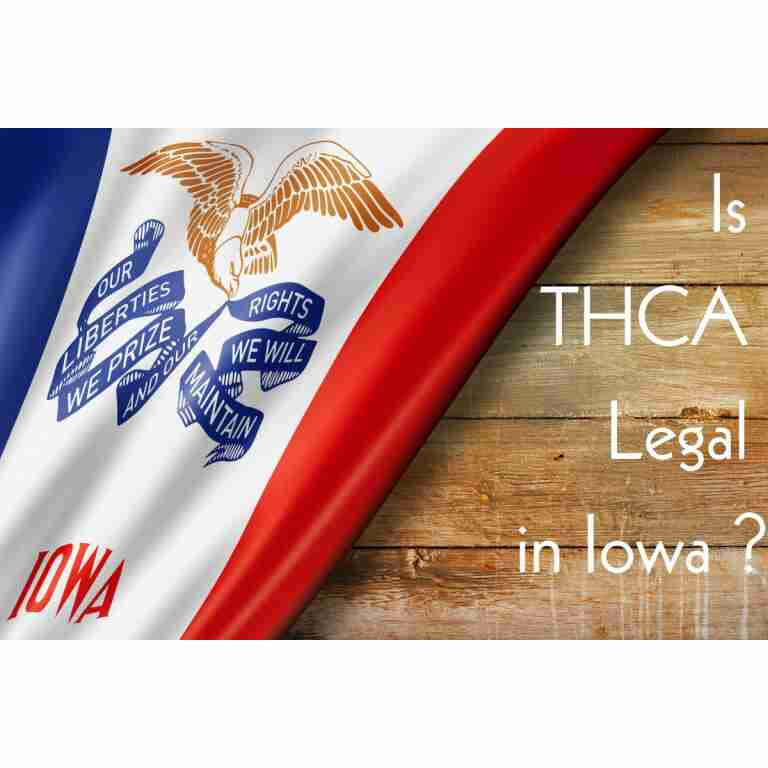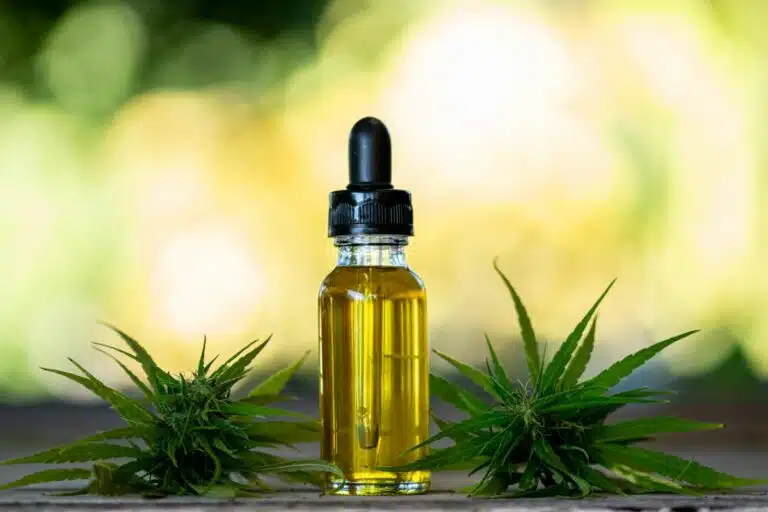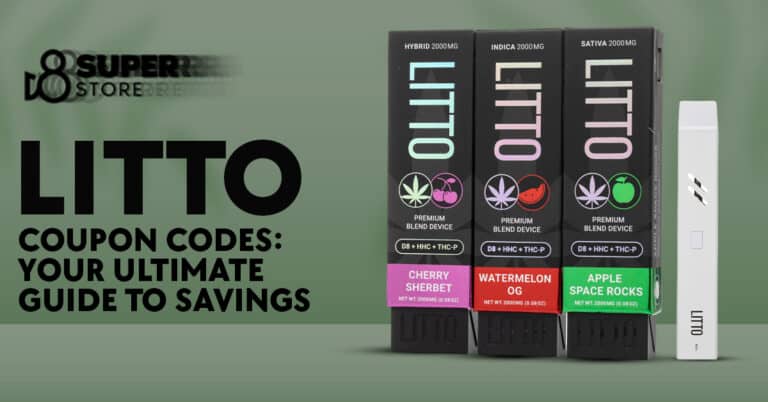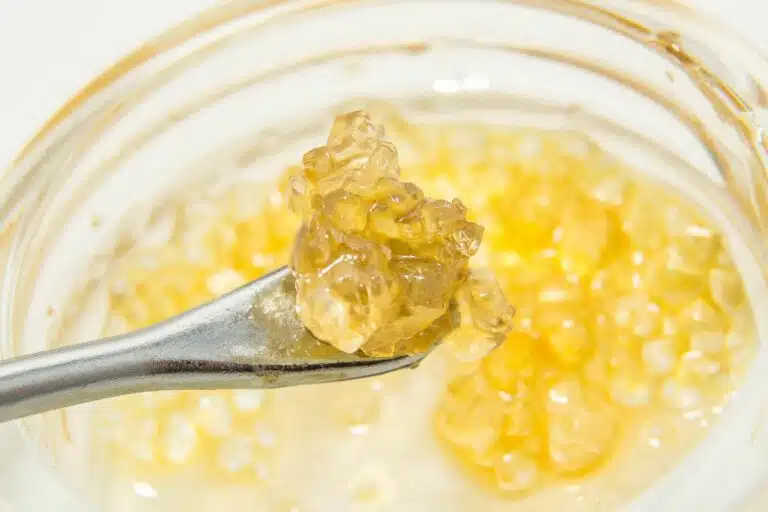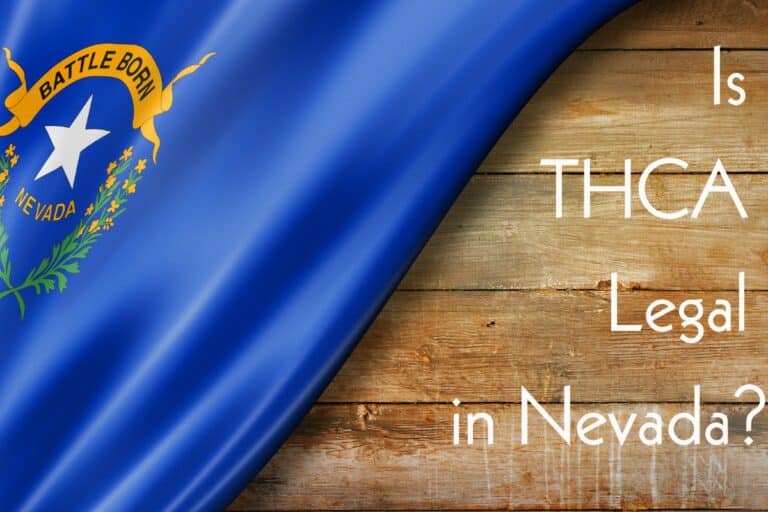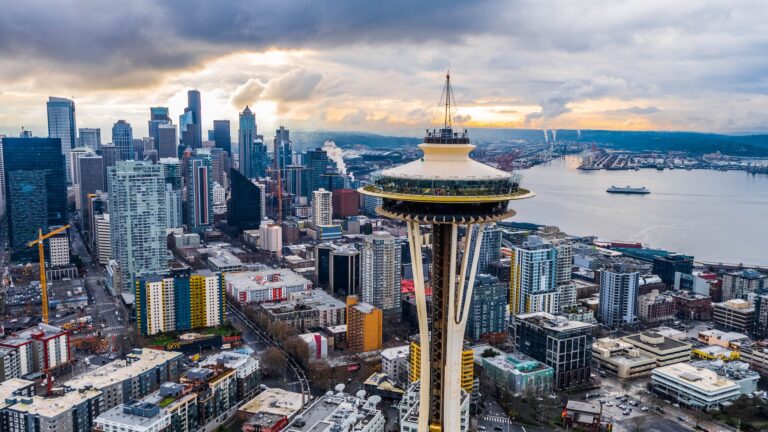Is THCa Legal in Montana: Understanding State Cannabis Regulations
Montana’s take on the herbal scene and its captivating players has truly flipped the script. Focus on a fascinating element: Tetrahydrocannabinolic acid (THCa), the quiet game-changer in fresh cannabis. Before diving into how Montana views THCa, let’s unravel its mystery. Imagine THCa as THC’s chill cousin, who doesn’t get you high. It transforms into THC only when the heat is on – almost like magic. Keep reading, and discover why this gem is a big deal in Montana.
Your interest in the legality of THCa in the Big Sky Country suggests that you are mindful of the state’s cannabis regulations. You’ll be pleased to know that Montana has legalized the cultivation of hemp, according to legal documentation, which suggests that hemp-derived products, including those containing THCa, must comply with specific state licensure and registration requirements. It’s crucial to differentiate between hemp and marijuana as defined under Montana law, because while marijuana remains a controlled substance, hemp is legally distinguished by its low THC content.
Understanding the legal status of THCa in Montana could prove to be complex due to the nuances of state and federal legislation. However, given that THCa is a precursor to delta-9 THC, the legal focus tends to be on the delta-9 content within the plant or product. If your curiosity pertains to whether THCa falls under a legal gray area or if THCa products can be legally purchased and used within Montana, it is key to consider the type of cannabis from which the THCa is derived and the state’s regulations regarding THC levels in cannabis products.
THCa Overview
Tetrahydrocannabinolic acid (THCa) is one of the many cannabinoids found in cannabis. Unlike its well-known counterpart, delta-9-tetrahydrocannabinol (THC), THCa is non-psychoactive. This means that you won’t experience the “high” commonly associated with cannabis use when consuming THCa in its raw form.
Here’s a brief overview of different attributes of THCa:
- Chemical Structure: THCa is the acidic precursor to THC. Through a process known as decarboxylation, which typically involves heat, THCa is converted into the psychoactive compound THC.
- Legal Status in Montana: The legal intricacies involving THCa stem from its relationship with THC. Since THCa can be converted into THC, the legalities are often tied together. Montana law has set specific standards that relate to THC content in cannabis products, affecting how THCa is regulated.
- Medical Research: While THCa does not induce psychoactive effects, it has garnered attention for potential therapeutic properties. Research indicates that THCa may offer benefits such as anti-inflammatory and neuroprotective effects.
When addressing cannabinoids in cannabis products, THCa is among those scrutinized in terms of legality and its conversion to THC. Your understanding of its non-psychoactive nature is crucial, and it’s important to stay informed about the current regulations in places like Montana to navigate the legal landscape of cannabis-related products responsibly.
Federal and State Law Differences
In the context of Cannabis legislation, you’ll find that Federal and State laws often have differing stipulations regarding the legality of various substances, which includes tetrahydrocannabinolic acid (THCa), especially when comparing federal oversight with Montana’s specific regulations.
2018 Farm Bill Overview
The 2018 Farm Bill federally legalized hemp by removing it from the definition of marijuana under the Controlled Substances Act. It defined hemp as cannabis with a delta-9 tetrahydrocannabinol (THC) concentration of not more than 0.3% on a dry weight basis, which pertains to the psychoactive component. This legislation doesn’t directly address THCa, but it provides a framework where derivates from hemp, which may include THCa, could be considered legal if compliant with other regulations.
Controlled Substance Act
Under the Controlled Substance Act (CSA), marijuana is classified as a Schedule I substance, which includes both THC, the main psychoactive compound, and THCa, which is a non-psychoactive precursor that can convert into THC. The crucial distinction here is that while THCa itself isn’t psychoactive, its potential conversion into THC brings it under the purview of Federal law.
State Law Nuances
In Montana, State law has evolved separately from Federal constraints. Cannabis for adult use, which would include cannabinoid derivatives such as THCa, has been legalized. However, these state laws are confined within the borders of Montana and must navigate the complexities of complying with both state and federal legislation. When addressing substances like THCa, Montana’s law permits it within state-regulated cannabis products, as long as it complies with state legislation regarding cannabis production and sales.
Montana Cannabis Laws
| Aspect | Medical Use | Recreational Use |
|---|---|---|
| Legalization | Legal since 2004 | Legal since 2021 |
| Possession Limits | 1 ounce (28 grams) of usable marijuana | 1 ounce (28 grams) of usable marijuana |
| Cultivation Limits | Patients: 4 mature plants and 4 seedlings | Adults: Up to 4 mature plants and 4 seedlings |
| Purchasing Limits | Patients: Purchasing limits defined by the program | Adults: Purchasing limits defined by the program |
| Retail Sales | Through state-licensed dispensaries | Through state-licensed dispensaries |
| Home Cultivation | Yes, for registered patients | Yes, for adults |
| Public Consumption | Prohibited in public places and vehicles | Prohibited in public places and vehicles |
| Driving Under the Influence | Strict DUI laws; THC blood limit established | Strict DUI laws; THC blood limit established |
In Montana, cannabis laws encompass recreational use, medical marijuana, and hemp cultivation, each with its own set of regulations.
Recreational Use in Montana
Following the passage of Initiative 190, you are allowed to use marijuana recreationally if you are 21 years of age or older. Since January 1, 2021, you’ve been able to possess and use up to one ounce of marijuana or eight grams of marijuana concentrate.
Medical Marijuana Regulations
Your access to medical marijuana in Montana began with the approval of the Montana Medical Marijuana Act (MMA) in 2004. As a registered patient, you can possess up to one ounce of usable marijuana. It’s important to note that you must have a qualifying debilitating condition to join the medical marijuana program.
Hemp and Hemp-Derived Products
Hemp cultivation is legal in Montana, and if you’re a farmer, you can grow this crop under the state’s hemp program. Since hemp by federal definition contains 0.3% THC or less, it falls under a different legal category than marijuana. As detailed in Montana hemp legislation, hemp-derived products including CBD are also legal, as long as they don’t contain more than 0.3% delta-9 THC.
Legal Implications of THCa
When exploring the legal landscape of THCa in Montana, you’ll find that it hinges on specific regulations tied to the cannabinoid’s psychoactive properties and its derivatives. THCa, or tetrahydrocannabinolic acid, is a non-psychoactive precursor to THC, the main intoxicating compound found in cannabis.
In Montana, like many states where cannabis has been legalized, the legal status of THCa is nuanced. Regulations typically focus on THC, the substance responsible for the ‘high’ associated with marijuana. Since THCa is not psychoactive, it falls into a gray area under state law.
Here’s what you need to know about THCa and regulations in Montana:
- Cultivation and Sales: Montana has legalized cannabis, which includes the cultivation of hemp if specific licensure and registration requirements are met. As THCa is present in raw cannabis plants, it is legally permissible within this context.
- Testing Standards: Montana law requires testing for the potency of THC in cannabis products. Although THCa is not regulated as THC, it is pertinent during testing, as it can convert to THC when decarboxylated (heated).
| Substance | Description | Legal Status in Montana |
| THCa | Non-psychoactive cannabinoid | Typically legal due to its non-intoxicating nature |
| THC | Psychoactive cannabinoid | Strictly regulated with permissible limits |
Keep in mind that even though THCa in its raw and unheated form is not typically the target of regulation, any derivatives resulting from its conversion to THC are subject to Montana’s cannabis laws. Therefore, while you can legally possess THCa, you must be cautious about its transformation into THC, which could create legal complications.

Possession, Cultivation, and Use
In Montana, the legalities regarding THCa, the non-psychoactive precursor to THC, are tied to the regulations surrounding cannabis. If you’re located in Montana, it’s crucial to understand the specific rules related to possession, cultivation, and consumption of cannabis and its compounds like THCa.
Possession Guidelines in Montana
In Montana, your right to possess cannabis is defined by state law. If you’re 21 years or older, you can possess up to one ounce (28 grams) of cannabis legally. This limit applies to forms that contain THC, such as dried flower and concentrates. However, the law doesn’t distinctly separate THCa from THC, so it implies that possession of THCa is permissible within this amount.
Cultivation Restrictions
As for cultivation, you’re allowed to grow up to four mature cannabis plants and four seedlings at a private residence in Montana, as long as they are not visible from a public space. This means THCa production through cultivation is limited to this amount. Any cannabis yielding more than this could result in legal penalties.
Consumption Rules
When it comes to consumption, be aware that you cannot consume cannabis or cannabis-derived compounds in public. It is only legal to use or consume such substances on private property not open to the public. Since THCa can convert to THC, the psychoactive compound, when heated, ensure you consume responsibly and in private settings to comply with local regulations.
Legal Thresholds and Product Guidelines
You need to understand the legal thresholds and product guidelines if you’re interested in the legal status of THCa in Montana. These determine whether a cannabis product is considered legal hemp or illegal marijuana.
0.3% Delta-9 THC Benchmark
Montana adheres to the federally established 0.3% Delta-9 THC threshold for hemp. This means that to be classified as legal hemp, the Delta-9 THC content must not exceed this percentage by dry weight. If the THC levels are higher, the product is categorized as marijuana, which is subject to different regulations.
THC Content Regulations
Legal cannabis products, including those containing THCa, must adhere to stringent THC content regulations. The total THC is a combination of Delta-9 THC and the potential THC from THCa, calculated with the molecular conversion factor of THCa to Delta-9 THC inflated THC potency on retail Cannabis labels. In Montana, there is a state law that authorizes hemp production which specifies testing standards different from those in other regions, including the consideration of THCa content.
Hemp Flower and Extracts
When it comes to hemp flower and extracts containing THCa, it’s crucial that these products meet the 0.3% Delta-9 THC criteria post-decarboxylation. Decarboxylation is a process by which THCa is converted to THC through heat. This underscores the importance of proper testing and labeling to ensure consumers and law enforcement can correctly identify legal products Hemp’s Arbitrary 0.3% THC Legal Standard.

Purchasing and Selling Cannabis Products
In Montana, your access to cannabis revolves around state-regulated dispensaries with clear guidelines for the purchase and sale of such products. Here’s what you need to know.
Retail and Dispensaries
Montana’s cannabis industry permits retail sale at licensed dispensaries. When looking to buy, you’ll find that dispensaries operate within state guidelines to offer a range of cannabis products, from flowers to extracts. Keep in mind that the potency and quality of these products, such as THC and CBD levels, are subject to rigorous testing. An analysis of retail cannabis labels indicates that reported THC potencies may sometimes be higher than the actual content in the products, underlining the importance of purchasing from reputable sources.
Consumer Purchase Guidelines
As a consumer, you must adhere to Montana’s legal age requirement and purchase limits. You’re allowed to buy and possess up to one ounce of marijuana or its equivalent in other forms. Remember, while you have the freedom to purchase, consuming cannabis in public remains illegal. Ensure you consume it in a private space to stay within the bounds of the law. For further details on legalities and consumer rights, it’s wise to familiarize yourself with the state’s regulations on the sale and consumption of cannabis products.
Cross-State Legal Considerations
When navigating the complexities of THCa legality, it’s important to consider how federal law intersects with state regulations. As you move between states, the jurisdictional discrepancies, especially around THCa, can present a challenge.
Interstate Legal Variances
Under federal law, THC and its analogs, which include THCa, are considered controlled substances. However, states have their own legal landscape which may conflict with federal regulations, leading to a patchwork of laws. When you travel between states, it’s crucial to understand that the legality of THCa can change. For example, certain states permit cannabis and its derivatives like THCa for medicinal or recreational use, whereas others may not.
Adjacent States’ Laws
The laws in Idaho contrast with those in Washington. Idaho has strict anti-cannabis laws, deeming all forms of cannabis, including THCa, illegal regardless of the reason for use. Conversely, Washington has legalized cannabis both medically and recreationally, which includes THCa. The legal status of THCa in Montana has aspects in common with Washington, with the state permitting use of cannabis and its derivatives under specified conditions. It’s imperative to verify current regulations as they can frequently change and have significant implications for crossing state lines.

Consumer Safety and Recommendations
When considering the use of THCa in products within Montana, it’s crucial to prioritize your safety. Since the legalization of recreational marijuana, which includes derivatives such as THCa, responsible consumption is paramount.
Age Restrictions: Bear in mind that these products are intended for adults over 21 years of age. Always verify that you fall within the legal age requirement before purchasing or consuming THCa-infused items.
Product Selection: Choose products from reputable sources, where you can be certain of the THC content. Look for labels that differentiate between the total THC and the THC excluding its precursor, THCa. This distinction is significant because THCa does not produce psychoactive effects until it is converted into THC, often through heating.
- Smoking/Vaping: If you choose to smoke or vape, understand that this accelerates the conversion of THCa to THC, which could increase potency.
- Cooking: Incorporating THCa into your cooking requires cautious dosage. Begin with smaller amounts and gradually increase to achieve the desired effect, avoiding overconsumption.
Recommendations for Safe Use:
- Purchase from licensed dispensaries.
- Start with low dosages and be mindful of potency.
- Store products safely out of reach of children and pets.
- Avoid driving or operating heavy machinery after consumption.
By adhering to these guidelines, you help ensure a safe and enjoyable experience with THCa in Montana. Remember that responsible use is key to minimizing potential harm and maximizing the benefits of this legal substance.
Future Trends in Cannabis Regulation
As you navigate the evolving legal landscape of cannabis, it’s important to stay informed about future regulatory trends that may affect cannabinoids such as THCa, Delta-8, Delta-9 THC, and Delta-10. Experts predict that regulation specificity will increase alongside the maturation of the industry.
Taxation and Revenue: Anticipate more structured tax frameworks becoming standard, which could impact the cost of cannabis products to you as a consumer.
- Sales Tax: Likely to be adjusted to reflect potency and type of cannabinoid.
- Excise Tax: Could be revised based on THC content to promote public health.
Regulatory Clarifications: Expect clearer guidelines distinguishing between cannabinoids, especially as synthetic ones like Delta-8 and Delta-10 gain prominence. Your ability to access these compounds may change as a result.
- Delta-9 THC: Restrictions tied to percentage per product weight.
- Delta-8 and Delta-10: Additional regulations due to synthetic processing methods.
Industry Standards: The industry is poised for enhanced quality control measures to ensure product safety and consistency. This can mean:
- Testing: Stricter protocols for cannabinoid profiles.
- Labeling: Comprehensive product information regarding THC and THCa content.
Legal Adjustments: State-specific legislation might evolve to create a unified stance on federal legality, particularly concerning Delta variants and other emerging cannabinoids.
In conclusion, you can expect a dynamic shift in regulations focusing on tax, public health, and consumer protection. Keep a close watch on these trends, as they will define your experience with cannabis products in Montana and beyond.
Frequently Asked Questions
In this section, you’ll find clear and specific answers to common queries about the legality of THCa, particularly focusing on its status within the United States and Montana.
What is the legal status of THCa on a federal level in the United States?
Federally, THCa is not scheduled under the Controlled Substances Act (CSA), unlike THC, which is classified as a Schedule I substance. However, because THCa can convert to THC, a psychoactive compound, its legal status can be complex and often hinges on the interpretation by law enforcement and regulatory agencies.
Can you legally ship THCa across state lines?
The legality of shipping THCa across state lines is murky. Shipping cannabis products that contain THC above 0.3% is federally illegal. Since THCa can convert to THC, shipping products high in THCa might be considered a legal risk, and the exact legalities depend on the laws of the originating and destination state.
Will the presence of THCa in the system be detected by standard drug tests?
Standard drug tests typically screen for the presence of THC, not THCa. However, because THCa can convert to THC in your body, it’s possible that using products containing THCa could lead to a positive test result for THC.
Does THCa produce psychoactive effects similar to THC when consumed?
On its own, THCa is not psychoactive and does not produce the ‘high’ associated with THC. However, through decarboxylation, which can occur when cannabis is heated or dried, THCa converts to THC, which is psychoactive.
What is the potency comparison between THCa and THC?
THCa is a precursor to THC and has different properties. While THCa in its original form is non-psychoactive, its potency in terms of converting to THC is significant, as the process can result in a nearly equivalent amount of THC.
Are there any states where THCa is explicitly legal or illegal?
The legality of THCa varies by state, as some states have more specific regulations regarding cannabis and its derivatives. In some states, like those with legalized recreational or medical cannabis, THCa may be legally bought and sold within the state’s regulated market. It is essential to check your state’s specific laws regarding THCa to understand its legal status better.



